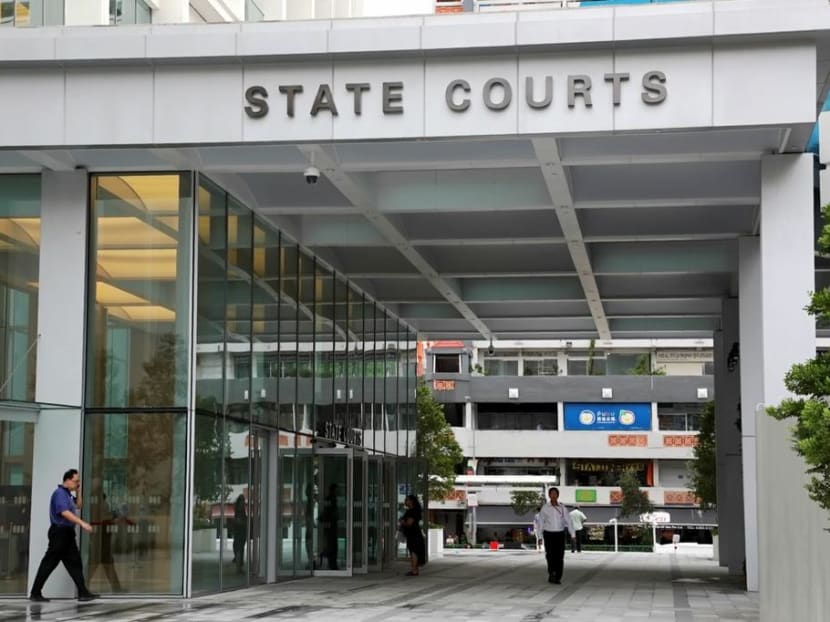HR manager jailed for exploiting payroll loophole to cheat employer of almost S$400,000
SINGAPORE — For about four years, assistant human resources manager Nurafizah Mohamed Shariff’s crimes went undetected.
She submitted duplicate claims for other employees’ salaries and got her boss to sign the cheques, cheating her company of about S$387,000.

Nurafizah Mohamed Shariff was jailed three years and one month after pleading guilty to three counts of cheating.
- Nurafizah Mohamed Shariff submitted duplicate claims for other employees’ salaries
- She got away with the crimes because the identities and wages of employees had to be redacted before they reached the finance department
- Her lawyer said she was desperate to support her family
SINGAPORE — For about four years, assistant human resources manager Nurafizah Mohamed Shariff’s crimes went undetected.
She submitted duplicate claims for other employees’ salaries and got her boss to sign the cheques, cheating her company of about S$387,000.
This was before her colleagues stumbled on a discrepancy in the accounts.
Nurafizah, 47, was on Tuesday (Dec 22) jailed three years and one month after pleading guilty to three counts of cheating. Another charge was taken into consideration during sentencing.
She has since returned S$20,000 to the firm.
She committed the crimes from 2012 to 2015, when she was an assistant HR manager at Econ Precast, a supplier of precast concrete structures and a subsidiary of Koon Holdings, a publicly listed infrastructure and civil engineering company. Econ Precast went into liquidation in July after Koon Holdings stated that there were “operating challenges”.
Part of Nurafizah’s job was to manage payroll matters for employees of Koon Holdings’ subsidiaries.
When employees resigned or had just been hired, they would receive their wages via a different process from the usual inter-bank Giro payments.
An HR executive will calculate the salary an employee should get, then submit it to Nurafizah with supporting documents. She would check on the accuracy of the figure.
Nurafizah would later hand the documents — including one listing the employees’ identities and salaries due — to the finance department, which would issue the cheques.
Since only employees in the HR department were allowed to know the salaries of employees, Nurafizah redacted the employees’ identities and salaries before handing over the documents.
After the finance department issued the cheques, she took them to her boss, a group HR manager, for signing.
The records would then be updated to show that the employees’ salaries had been settled.
Their names, however, remained in the payroll system, because the system would not be updated until the next month.
AVOIDED DETECTION
Around April 2012, Nurafizah realised that she could exploit a loophole to make false, duplicate claims for her own benefit.
She would submit an extra redacted copy of the document listing employees’ identities and salaries to the finance department. Occasionally, she mixed these duplicate claims with genuine ones.
After getting the cheques signed, Nurafizah pocketed the extra cash.
She would also amend a report with information on the HR department’s salary claims for a certain month. She included the duplicate claims to ensure that there were no discrepancies between the report and what the finance department issued.
She avoided detection for about four years until staff members from the finance and HR departments were discussing an unrelated project involving wage allocation in late December 2015.
Deputy Public Prosecutor (DPP) Benedict Teong said that this led to the fortuitous discovery of a discrepancy of S$1,971 between figures provided by the finance and HR departments.
This was because Nurafizah was on leave and could not amend the report to include a duplicate claim.
CHEATED OUT OF ‘DESPERATION AND FEAR’
DPP Teong sought three years and three months’ jail, saying that Nurafizah had devised a method that was difficult to detect and showed an “egregious” abuse of trust.
In mitigation, her lawyer Sujesh Anandan said that she was remorseful, as shown by the reimbursement she made.
The prosecutor argued that it was only 5 per cent of the sum that she cheated, but Mr Anandan said that it was all she could afford because of her background and circumstances.
She committed the crimes not out of greed but “desperation and fear of not being able to support her family”, Mr Anandan added.
Right now, she works as a driver with ride-hailing firm Grab to support her parents as well as her youngest brother’s wife and children.
Mr Anandan said that she was also charged almost five years after her crimes came to light. This has taken an emotional and physical toll on her and her family, he added.
During sentencing, District Judge A Sangeetha said that Nurafizah planned her crimes for a “protracted duration” and for personal gain.
However, the judge found that she was remorseful as she had cooperated with the authorities for five years and pleaded guilty at the earliest opportunity.
She will begin serving her jail sentence on Jan 5 next year.
For each cheating charge, Nurafizah could have been jailed up to 10 years and fined.
TODAY has asked Koon Holdings for comment.











